Bitcoin - Its All About a Simple Cup of Coffee
Many still do not understand how disruptive Bitcoin is even after it has become more and more mainstream. They continue to act as if nothing backs Bitcoin so its intrinsic value is zero. These are the same people that think their native currency is backed by something. Looking at the USD it clearly states “In God We Trust”. So is the dollar backed by God?
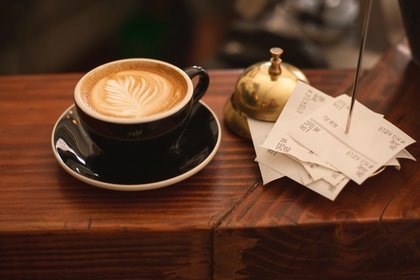.jpg)
Photo by Carli Jeen on Unsplash
The fact is nothing backs Bitcoin and nothing backs the dollar. In reality nothing really backs gold either. So why do we put our “trust” in these non intrinsic stores of value?
What it really comes down to is trade and barter and acceptance in different societies. Come to the US with Aussie Dollars and you will find it hard to buy a cup of coffee. People in the US simply do not take AUD for goods and services. The same goes for a US citizen visiting Australia.
Fiat currencies, like gold, silver and Bitcoin, are simply a medium of exchange. The basis of this is food, clothing and shelter. If I own a cattle ranch, and need corn to feed my cattle, I can go to a corn farmer and trade cattle for corn. Yet the amount of corn I need is greater than the amount of cattle the farmer may want. This is where currencies provide a bridge.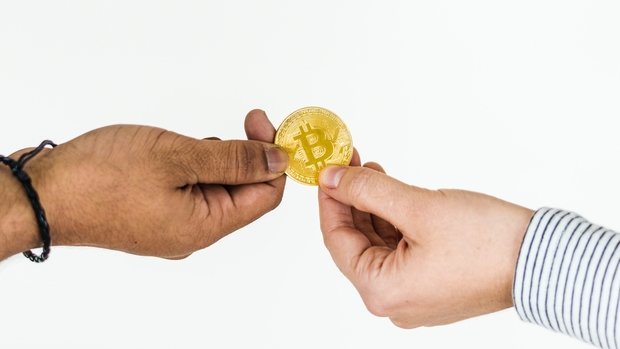.jpg)
Photo by rawpixel on Unsplash
I can sell my cattle on the open market for a medium the farmer accepts. Then I can use that medium to purchase corn. What makes this medium acceptable is if the farmer can buy seed or fertilizer from a broker.
In other words, what provides value to the dollar, gold or Bitcoin is that it is acceptable within the economy of a particular society. So why do many consider Bitcoin a disruptor to the financial systems? There are already mediums of exchange that are widely acceptable. It starts with a cup of coffee!
There was a comment on one of my articles where someone believed Bitcoin was going to zero simply because they could not buy a cup of coffee at his local café with Bitcoin. By this measure in 1997 ecommerce was a dumb idea because you couldn't buy your coffee online either. At that time who bought coffee online?
Many of you may be too young to remember when online e-commerce evolved in the late 90's early 2000's. At first many of us were skeptical about buying stuff online and it took years for it to become main stream. In 1999 less than 0.5% of retail sales were ecommerce. By 2006 that had grown to just under 3%. By 2017 this was 9% of total US sales.
I remember myself thinking "who would want to buy online when the store is so much more convenient?" ecommerce disrupted the traditional way we bought products, and cryptocurrencies have the potential to disrupt how we buy them.
Merchants eventually realized they could sell more coffee buy selling online and now I can buy any type of coffee online. I can even have it delivered to my home on the same day. This was unthinkable 20 years ago.
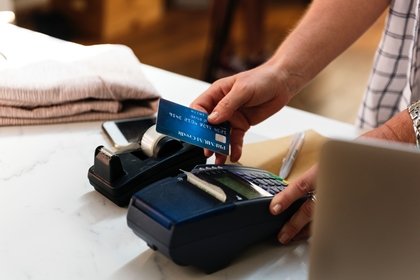.jpg)
Photo by rawpixel on Unsplash
The key word here is merchants. As an owner of a restaurant, we take credit cards. Our typical monthly fees for credit card purchases are just under 3%. Doesn't sound like a lot, but when you are doing 60k a month in credit cards that equates to 2k of your profits just to take people’s money. This is 24k a year.
Many companies like Subway are already taking cryptocurrencies for this exact reason. Starbucks will soon be taking Bitcoin as well, and others will follow. See cryptocurrencies is not just a fad, it is disrupting the financial institutions that have held merchants at bay, by scalping money off of every sale they do.
You have processing fees, points fees, bank fees, and the transaction fee itself. All these middle men take profits away from merchants. Why do you really think Jamie Dimon (Chase card) really hates cryptos? This is not going to happen over the next 3 months, or 1 year, but it will happen. Once the growth starts, like ecommerce, it will be disruptive to banks that collect these fees.
These same banks have profit just to convert one currency to another. Do you think there is a reason why many countries in Europe still have a native currency and the Euro? Yes many want to retain a nation’s individuality but their banks also make money on currency conversions and a lot of it.
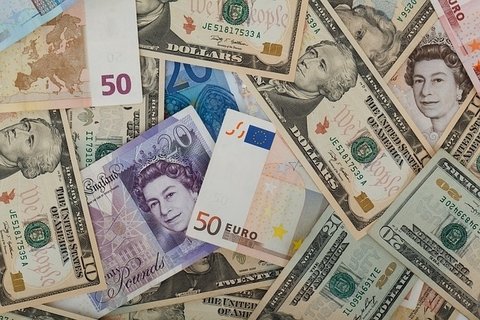.jpg)
Often travelers or online buyers pay 3-5% to exchange your native currency to another. Bank of America is currently converting at 1.2298 EURUSD' where the spot price is 1.1670. Nice 5%+ conversion fee for the bank. PayPal charges as well for currency conversion.
Bitcoin, and blockchain in general, are changing the way we transact. This is no different then the internet changed the way we buy goods and services. Whether Bitcoin becomes the gold of cryptos only the future beholds. What we are looking for is acceptance by society.
Like society has accepted gold for thousands of years, we are looking for this same type of acceptance with Bitcoin. We are starting to see it, not just with libertarians, but with large fund managers like Morgan Creek who allocate nearly 70% of their cryptocurrency fund to Bitcoin.
When ever I mention Bitcoin around a group of people, the first question generally asked is “is it really a good investment?” Let us not deny that it is still in the early stages of adoption but so was ecommerce at one time. In 2006 how many of you had an Amazon account? Today who does not have an Amazon Prime account?
As merchants realize the fee savings by taking cryptos, and customers realize the savings in conversion fees, the market will grow. No different then when we finally realized we could buy coffee online cheaper than the store and it is much more convenient.
Just because your coffee shop does not take cryptos now, does not mean it will not have to evolve to do so. Just ask yourself, did your coffee shop have a website, app, or take Apple Pay 10 - 15 years ago?
This evolution to marketing made merchants that took advantage of new technologies, an edge over their competition. We do not need to look any further than the retail space for evidence.
Those companies that evolved to ecommerce are starting to compete with Amazon. Eventually your coffee shop will to. If not and there is a coffee shop down the road that accepts cryptos, they will flourish and your will perish.
As adoption grows, merchants that do not take cryptocurrencies will be left behind. Think of the opportunity Sears missed back in the early days of ecommerce. It was slow to evolve and is now about to perish.
#Marketing and #Money:
Merchants have one goal and it is to be profitable. If a coffee shop can market it takes Bitcoin, it gains advantage over one that does not. It makes it products more available to another group.
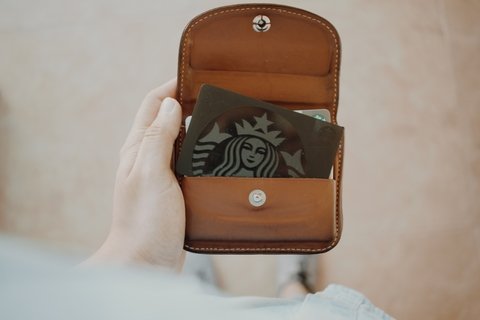.jpg)
Photo by Rebecca Aldama on Unsplash
In addition, the fees paid for a cryptocurrency transaction are much less than traditional credit card fees. As a restaurant owner fees do matter, and 1-2% savings on 60k a month is real money in my pocket! Imagine a steak house that does 50k on a Friday night?
This is how cryptos have the potential to change the way we trade, barter, and transact. However, because there is a loser, namely the banks who have controlled our money for so long, they are using their power and influence to fight it every step of the way. In the end it is the consumer and merchant that will bring down the banks, and like the K-Marts and Sears of the past we will see evolution of our banking industry.